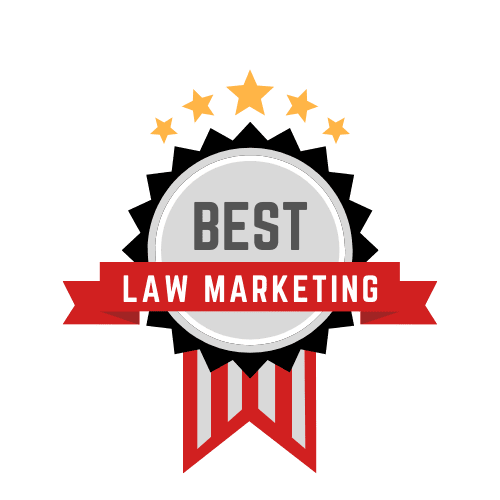Optimizing metadata for a lawyer's website is crucial because it helps search engines understand the content of each page, and it also influences how the website is perceived by potential clients in search results. Here are the top 5 tips for optimizing metadata for lawyer SEO:
By implementing these tips, you should be able to create metadata that not only boosts your SEO efforts but also attracts more potential clients by clearly communicating what you offer and why they should choose your legal services. Remember that SEO is an ongoing process, so it is important to monitor and refine your strategy regularly.
In the realm of Search Engine Optimization (SEO), on-page optimization plays a vital role in improving a website's visibility and organic search rankings. On-page SEO refers to the practices and techniques implemented directly within a website to enhance its relevance, user experience, and overall search engine performance. This blog post will delve into the fundamentals of on-page SEO, its key components, and the benefits it offers to websites seeking to attract more organic traffic.
On-page SEO involves optimizing various elements and factors within a website to align with search engine algorithms and user expectations. It focuses on making the website more relevant, accessible, and user-friendly, resulting in higher search engine rankings and improved visibility for targeted keywords.

On-page SEO is a complex process that involves several key components. In this article, we will discuss the critical elements of on-page SEO and how you can optimize them for better search engine rankings. Whether you are a beginner or an experienced marketer, this guide will help you understand the crucial aspects of on-page SEO and take your website's visibility to the next level.
Keyword research is the foundation of on-page SEO. It involves identifying the keywords and phrases that potential visitors are likely to use when searching for specific products, services, or information. By strategically incorporating these keywords into page titles, headings, meta tags, URLs, and content, websites can improve their relevance and visibility in search engine results.
High-quality content is essential for both users and search engines. On-page SEO emphasizes creating informative, engaging, and relevant content that aligns with the target audience's needs and search intent. Well-written articles, blog posts, product descriptions, and landing page content not only attract visitors but also increase the likelihood of earning backlinks and social shares, further enhancing search engine visibility.
Page titles and meta descriptions serve as brief summaries of a webpage's content in search engine results. Optimizing these elements with relevant keywords and compelling descriptions can significantly impact click-through rates and user engagement. Unique and descriptive titles and meta tags should accurately reflect the content on the page, encouraging users to click and explore further.
A clean and logical URL structure helps search engines and users understand the hierarchy and context of a website. Including relevant keywords in the URL and using hyphens to separate words enhances readability and improves search engine crawling and indexing.
Header tags (H1, H2, H3, etc.) break up the content into logical sections and provide structure for both users and search engines. Proper use of header tags helps search engines understand the website's content hierarchy and can improve keyword relevance and user experience.
Optimizing images is crucial for on-page SEO. Compressing image files to reduce page load times, using descriptive alt text, and adding relevant filenames and captions contribute to improved accessibility, user experience, and search engine visibility.
Implementing on-page SEO techniques can help your website rank higher on search engine results pages, leading to increased traffic, engagement, and ultimately, conversions. In this article, we will discuss the benefits of on-page SEO and how it can positively impact your website's online presence.
Implementing on-page SEO techniques enhances a website's visibility in search engine results pages (SERPs). By optimizing relevant elements and incorporating targeted keywords, websites can rank higher for specific search queries, attracting more organic traffic and potential customers.
On-page SEO focuses on improving user experience by providing valuable content, logical navigation, and fast-loading pages. A user-friendly website with relevant information and easy-to-use features encourages visitors to spend more time on the site, reducing bounce rates and increasing conversion rates.
Higher search engine rankings resulting from on-page optimization efforts can drive significant increases in organic traffic. Appearing on the first page of search results for relevant keywords increases the chances of attracting visitors who are actively seeking the products, services, or information offered by the website.
In competitive industries, effective on-page SEO can give websites a competitive advantage. Optimizing key elements helps differentiate a website from its competitors, establish authority, and position it as a valuable resource in the eyes of search engines and users.
The effects of on-page SEO can have a lasting impact. By continuously optimizing and updating content, keeping up with search engine algorithm changes, and monitoring user behavior, websites can maintain and improve their search engine rankings over time.
On-page SEO is a crucial component of any successful SEO strategy. By optimizing various elements within a website, businesses can improve their search engine visibility, attract targeted organic traffic, and enhance the overall user experience. Contact us today to start getting more leads through your website.

This site is protected by reCAPTCHA and the Google Privacy Policy and Terms of Service apply.